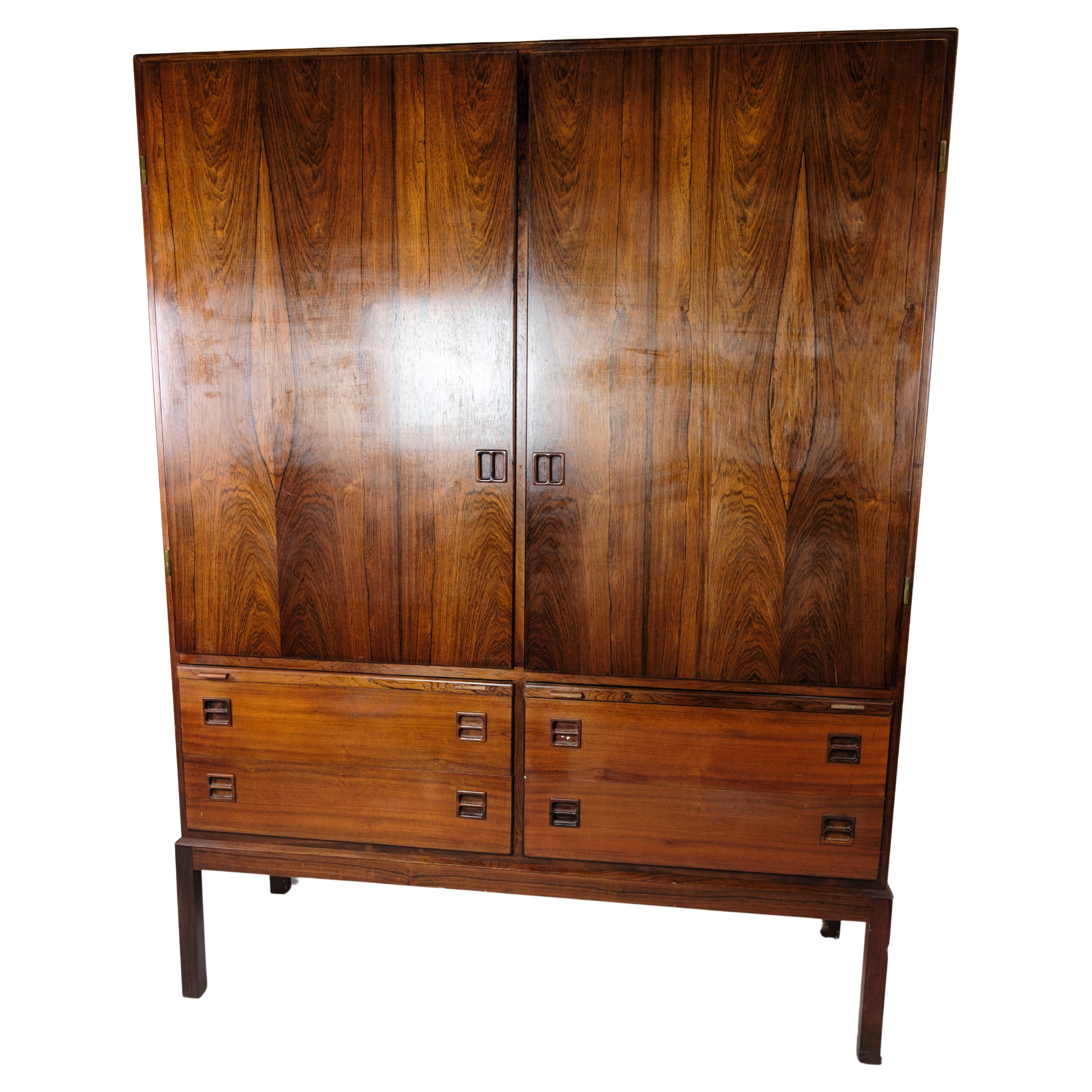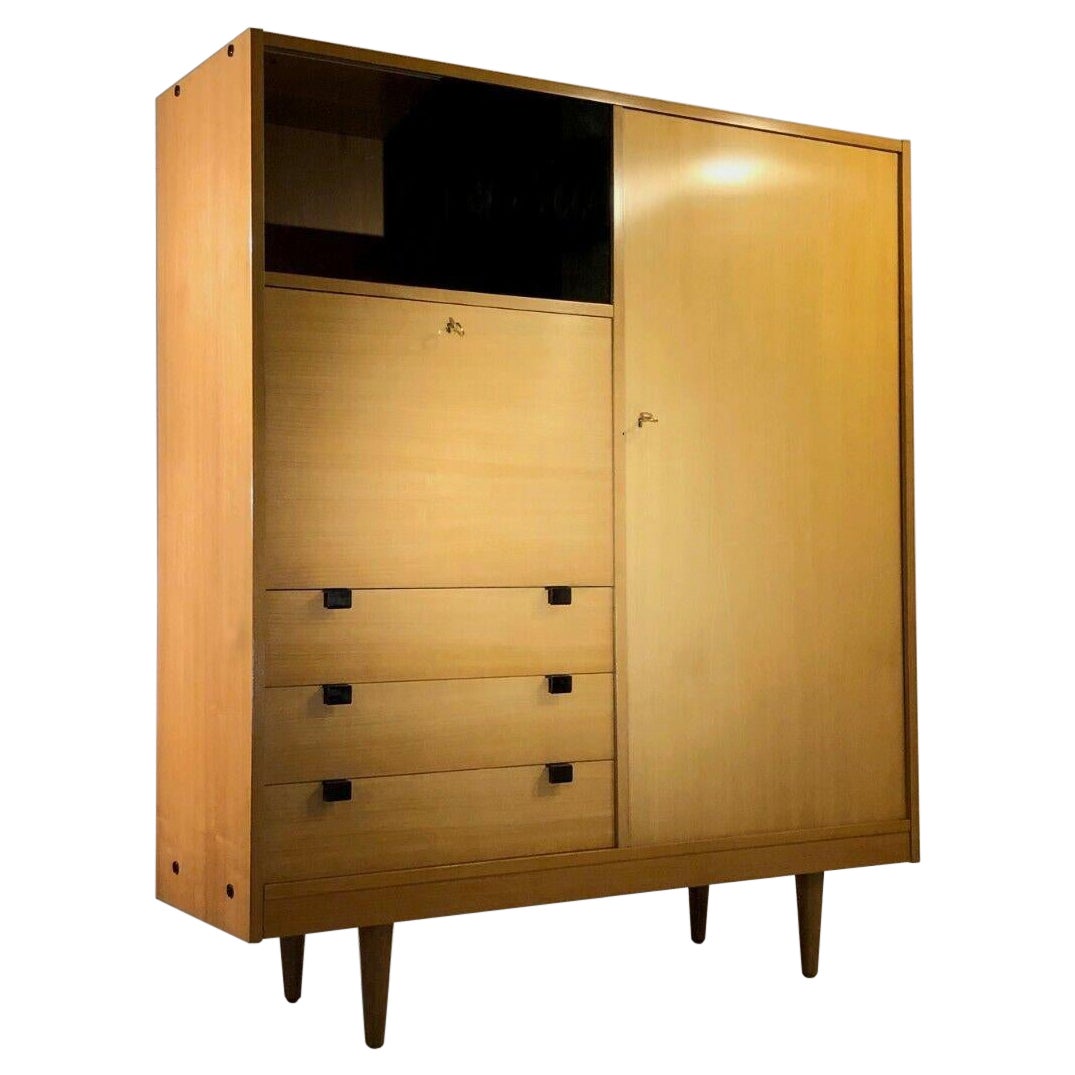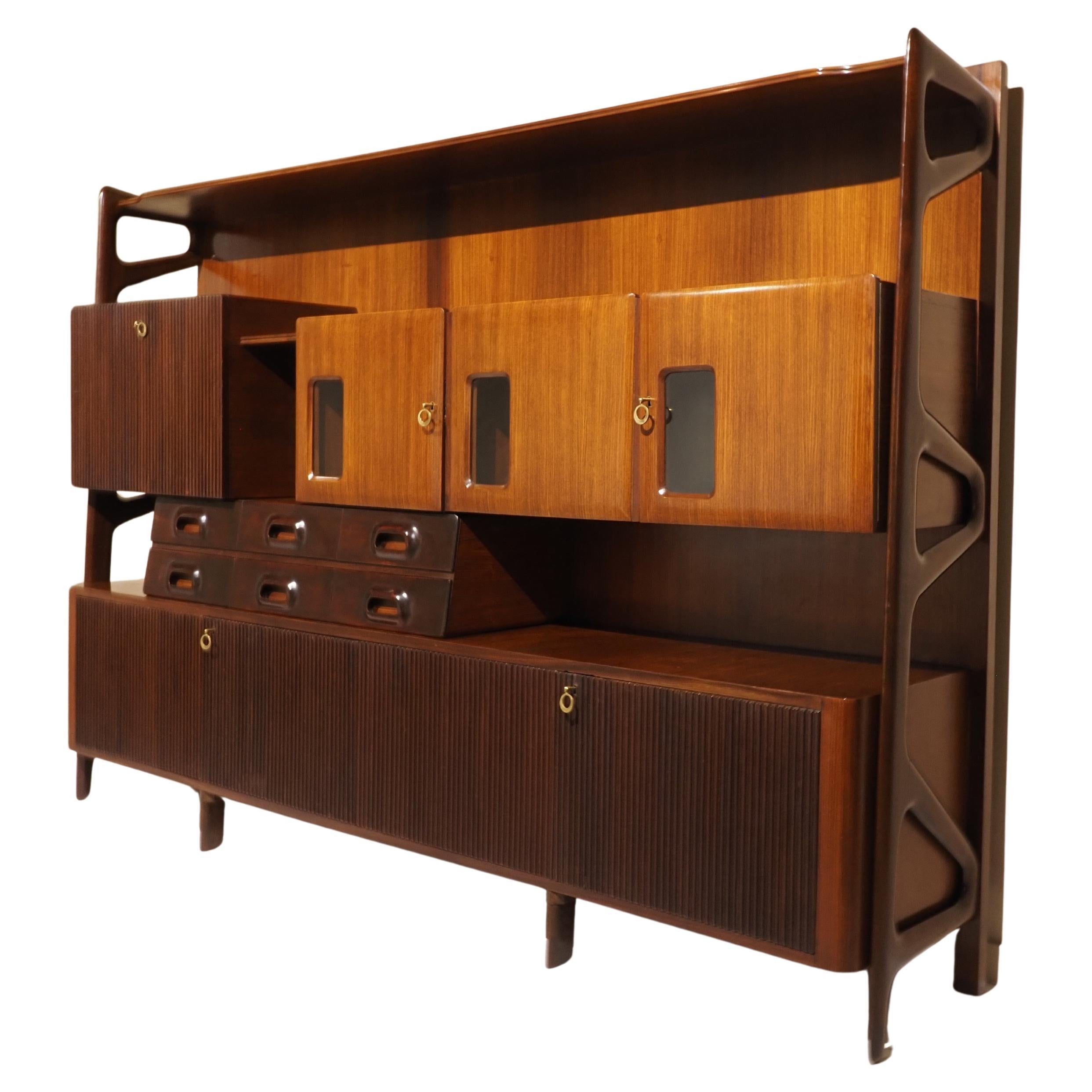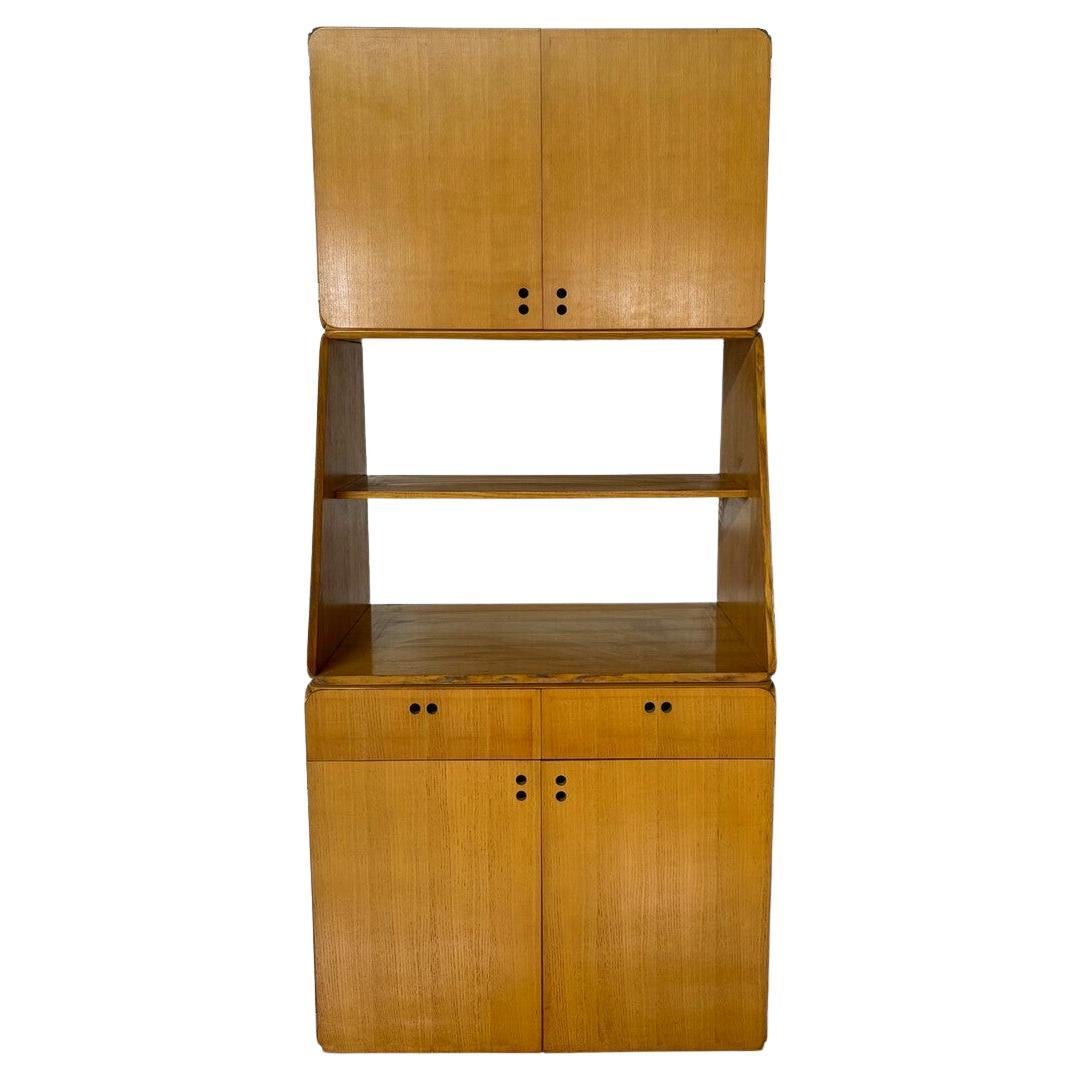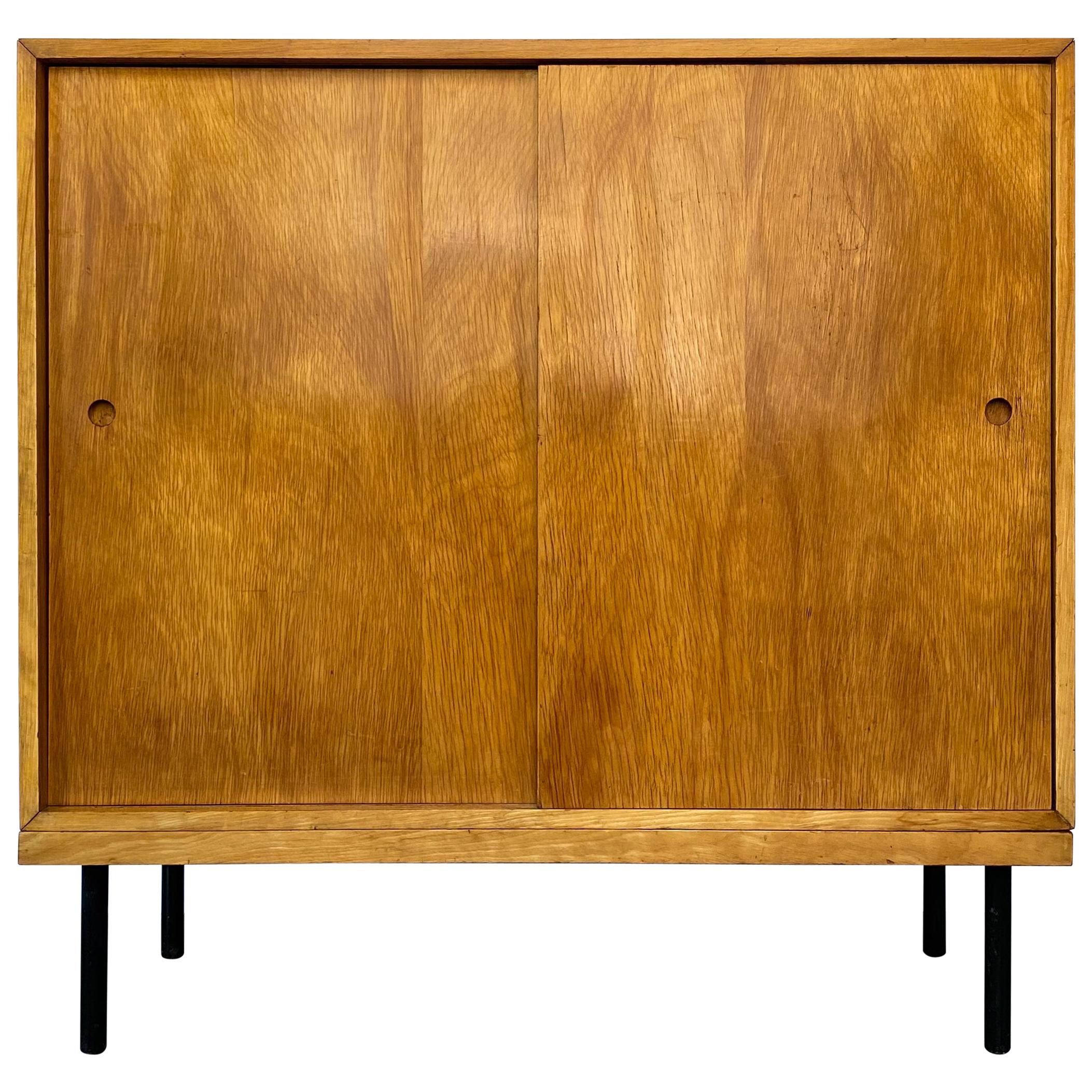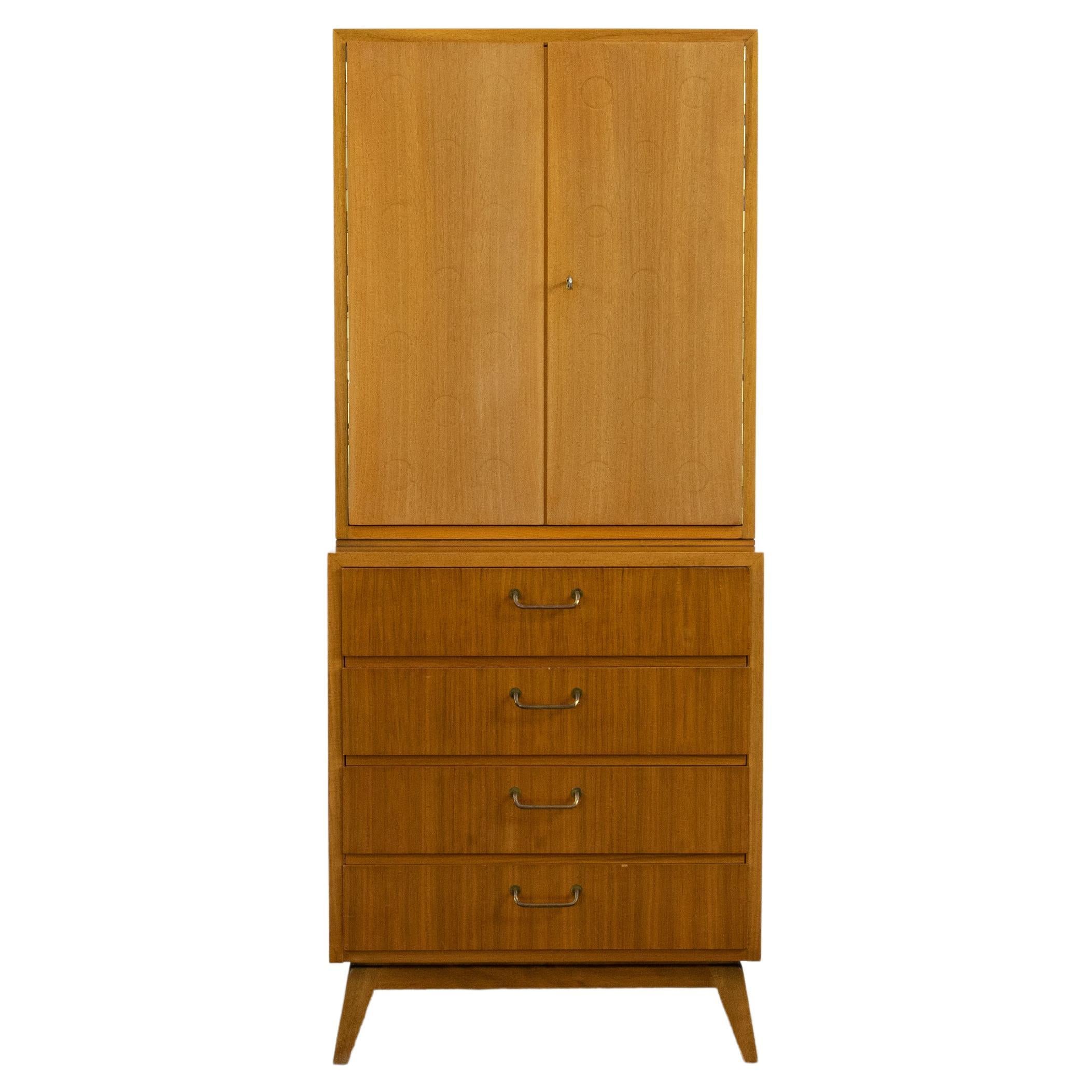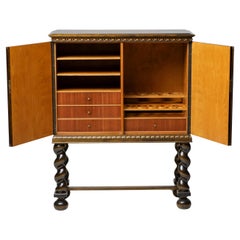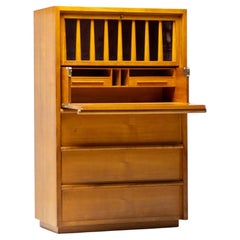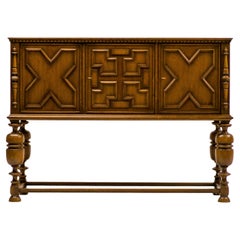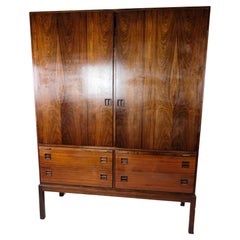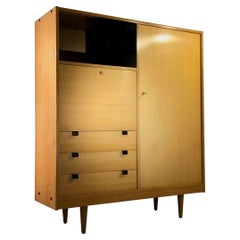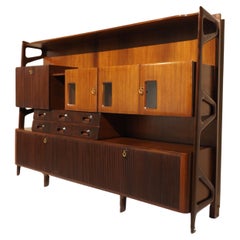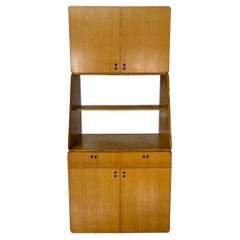Items Similar to Modernist Pander Cabinet
Want more images or videos?
Request additional images or videos from the seller
1 of 16
Modernist Pander Cabinet
$3,250
£2,454.62
€2,835.47
CA$4,578.79
A$4,903.88
CHF 2,636.29
MX$59,560.52
NOK 33,310.85
SEK 30,498.56
DKK 21,186.11
About the Item
Beautiful Mid-Century Modern cabinet made by Pander & Zonen, renown Dutch manufacturer of high-end furniture in the first half of the 20th Century. Pander worked with important interior architects and architects like Hendrik Wouda.
Most items where made in very limited editions and the craftsmanship was outstanding.
This cabinet is no exception, the sliding doors work effortlessly, all lines are 100% straight and every drawer still fits perfectly, after almost a century of careful use. This piece is also a very practical storage space.
The bronze handles are a fine example of the craftsmanship.
The piece is marked with a metal shield at the rear.
- Creator:H.Pander & Zonen (Maker)
- Dimensions:Height: 64.57 in (164 cm)Width: 39.38 in (100 cm)Depth: 17.72 in (45 cm)
- Style:Mid-Century Modern (Of the Period)
- Materials and Techniques:
- Place of Origin:
- Period:
- Date of Manufacture:circa 1950
- Condition:
- Seller Location:Dronten, NL
- Reference Number:1stDibs: LU931443500782
About the Seller
4.9
Platinum Seller
Premium sellers with a 4.7+ rating and 24-hour response times
Established in 1995
1stDibs seller since 2012
977 sales on 1stDibs
Typical response time: 1 hour
- ShippingRetrieving quote...Shipping from: Dronten, Netherlands
- Return Policy
More From This Seller
View AllMid-Century Bar Cabinet by Möbelproduktion AB, Sweden, ca 1950s
Located in Dronten, NL
A striking example of Scandinavian mid-century design, this bar cabinet by Möbelproduktion AB from Sweden, circa 1950s, embodies elegance, functionality, and craftsmanship. Construct...
Category
Mid-20th Century Scandinavian Modern Cabinets
Materials
Ash, Teak, Burl
Unique One-Off T.H. Robsjohn-Gibbings Secretary Cabinet by ‘t Woonhuys, 1955
By T.H. Robsjohn-Gibbings, 't Woonhuys
Located in Dronten, NL
A remarkable and unique one-off secretary cabinet designed by T.H. Robsjohn-Gibbings and custom-produced by ‘t Woonhuys in 1955. This exceptional piece exemplifies the designer’s mas...
Category
Vintage 1950s Dutch Mid-Century Modern Buffets
Materials
Nickel
"Roma" Cabinet by Axel Einar Hjorth for NK Sweden
By Axel Einar Hjorth, Nordiska Kompaniet
Located in Dronten, NL
Spectacular cabinet in dark stained oak with light oak interior, designed by Axel Einar Hjorth for Nordiska Kompaniet. Manufactured in 1935. Very impressive and practical piece, larg...
Category
Vintage 1930s Swedish Mid-Century Modern Sideboards
Materials
Oak
Modernist Cupboard by Willy Van Der Meeren for Tubax – Belgian Design Icon, 1950
By Tubax, Willy Van Der Meeren, Jean Prouvé
Located in Dronten, NL
An exceptional example of European mid-century modernism, this cupboard by Willy Van Der Meeren for Tubax was designed in the early 1950s and remains one of the most celebrated piece...
Category
Vintage 1950s Belgian Mid-Century Modern Cupboards
Materials
Steel
Aldo van Eyck Structuralist Corner Cabinet
By Gerrit Rietveld
Located in Dronten, NL
This very rare asymmetrical corner cabinet has been preserved from the original interior of the former orphanage and current national monument "Het Burgerweeshuis" in Amsterdam, The ...
Category
Vintage 1960s Dutch Mid-Century Modern Corner Cupboards
Materials
Oak, Plywood
Rimbert Sandholt Brazilian Rosewood Dresser, Denmark, 1960s
By Rimbert Sandholdt, AB Glas & Trä
Located in Dronten, NL
A refined example of Danish modern craftsmanship, this Brazilian rosewood dresser by Rimbert Sandholt showcases the designer’s dedication to proportion, material, and detail. Produce...
Category
Vintage 1960s Swedish Scandinavian Modern Dressers
Materials
Brass
You May Also Like
Cabinet By Johannes Andersen For Bernhard Pedersen & Son From 1964s
By Johannes Andersen, Bernhard Pedersen & Son
Located in Lejre, DK
This cabinet, designed by Johannes Andersen and manufactured by Bernhard Pedersen & Søn in Denmark in 1964, is a stunning example of mid-century modern design. Crafted from exquisite...
Category
Vintage 1960s Danish Mid-Century Modern Cabinets
Materials
Rosewood
A MODERNIST Wardrobe CABINET in the Spirit of ALAIN RICHARD & ARP, France 1950
By ARP (Research Plastic Studio)
Located in PARIS, FR
An elegant small wardrobe, Modernist, Bauhaus, Reconstruction, veneer wood structure in clear warm color, a large door opening on the shelving system, with four drawers, one writing desk and shelves with...
Category
Vintage 1950s French Mid-Century Modern Wardrobes and Armoires
Materials
Metal
Silvio Cavatorta Italian modernist cabinet
By Silvio Cavatorta
Located in Diest, BE
Cabinet features sculpted truss style legs and a panel back which support various cabinets. Featuring a reeded drop down bar, 6 sculpted handle drawers, 3 storage cabinets with reces...
Category
Vintage 1950s Italian Mid-Century Modern Cabinets
Materials
Wood
Mid-Century Wooden Cabinet by Derk Jan de Vries, 1960s
Located in Brussels, BE
Mid-Century Wooden Cabinet by Derk Jan de Vries, 1960s
Category
Mid-20th Century Italian Mid-Century Modern Cabinets
Materials
Wood
Art and Trade Shop Unit Cabinet
By Eero Saarinen
Located in New York, NY
Custom and well-crafted modular sliding-door cabinet produced by Eric R.E. Schuster of the Art and Trade Shop of New York City in the early 1940s. Styl...
Category
Vintage 1940s American Mid-Century Modern Cabinets
Materials
Birch
Vintage Mid Century Bar Cabinet by Ernst Behr, Germany 1950s
By Behr
Located in Halle, DE
Mid Century two piece bar cabinet consists of chest of drawers and bar cabinet on top in nutwood veneer. Both pieces are stamped on the back with...
Category
Vintage 1950s European Mid-Century Modern Cabinets
Materials
Nutwood
More Ways To Browse
Metal Shield
Italian Shutters
Spice Cabinet
Tall Metal Cabinet
Antique Display Counter
Antique Shop Display Cabinet Cabinets And Cupboards
Antique Wood And Glass Curio Cabinet
Bargueno Cabinet
Black Accent Cabinets
Black Cabinet With Flowers And Birds
Brass Curio
Cabinet On Casters
Coromandel Cabinet
Facet Cabinet
Grand Rapids Furniture Company
Hexagon Cabinet
James Mont Oak
Korean Elm
